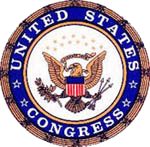Press Release: Virtual Economies Need Clarification, Not More Taxes
WASHINGTON, D.C. – The past few years have seen a dramatic increase in the popularity of online gaming and the virtual economies that accompany them. The population of these online worlds has been estimated to exceed 10 million people worldwide. Because of their newness, some uncertainty exists regarding taxes and intellectual property rights.
“There is a concern that the IRS might step forward with regulations that start taxing transactions that occur within virtual economies. This, I believe, would be a mistake,” Chairman Jim Saxton said today.
In response to this concern, the staff of the Joint Economic Committee has begun an examination of the public policy issues related to virtual economies. A virtual economy is defined as the universe of transactions that occur within an online community, such as Second Life or World of Warcraft. These transactions include the sale of goods and services and take place entirely within virtual economies; there is no real-world or physical exchange. However, a real-world value can often be assigned to such transactions using exchange rates or other methods.
Based on existing law, if an individual generates cash income in U.S. dollars from transactions in virtual economies, the question may arise whether a tax is due on that real-world income. However, if the transaction takes place entirely within a virtual economy, then it seems there is no taxable event. Such distinctions should be addressed and resolved in a common-sense
manner.
Clearly, virtual economies represent an area where technology has outpaced the law. The goal of the forthcoming JEC study is to help lawmakers understand the issues involved and head off any premature attempt to impose a tax on virtual economies.

